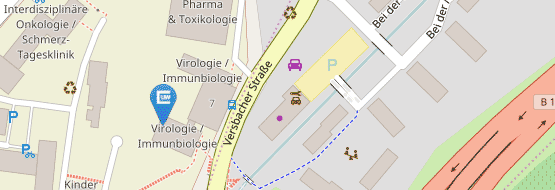Project P08
Impact of HCMV-encoded FcγR antagonists on innate immune cell function
Prof. Dr. Hartmut Hengel
HCMV encodes a uniquely large arsenal of immunoevasins, including the Fcγ-binding glycoproteins gp34 (RL11), gp68 (UL119-118) and gp95 (RL12). We demonstrated that these factors share the ability to inhibit IgG-mediated effector functions such as triggering of the activating Fcγ receptors FcγRIII/CD16, FcγRII/CD32 and FcγRI/CD64, the former executing antibody-dependent cellular cytotoxicity (ADCC) by natural killer (NK) cells. At the same time, HCMV infection induces the occurrence and expansion of "adaptive" NK cells, which are not observed in uninfected individuals. "Adaptive" NK cells differ from conventional NK cells and exert particularly effective antiviral effector functions, such as ADCC. Based on our findings on the molecular mode of action and how gp34 and gp68 cooperate, we are now in the position to develop new experimental systems, which allow FcγRIII-dependent expansion of “adaptive” NK cells in vitro and demonstrate for the first time the obstructive potential of gp34 and gp68. This approach enables us also to investigate in cooperation with P09 the impact of natural antibody responses against gp34 and gp68 on ”adaptive” NK cell expansion in vitro and under conditions of latent infection vs. HCMV disease in vivo. Finally, the hypothesis of FcγR immune cell attenuation by HCMV antagonists will be transferred to CD16+ gd T cells and tested after the establishment of suitable culture conditions in vitro. In conjunction with the resolution of the gp34 and gp68 ultrastructure via Cryo-EM and applying a panel of newly developed monoclonal antibodies recognizing gp34 and gp68, we envisage new molecular concepts for antibody-based interventions that could allow the targeted modulation of "adaptive" NK as well as gd T cell functions.

